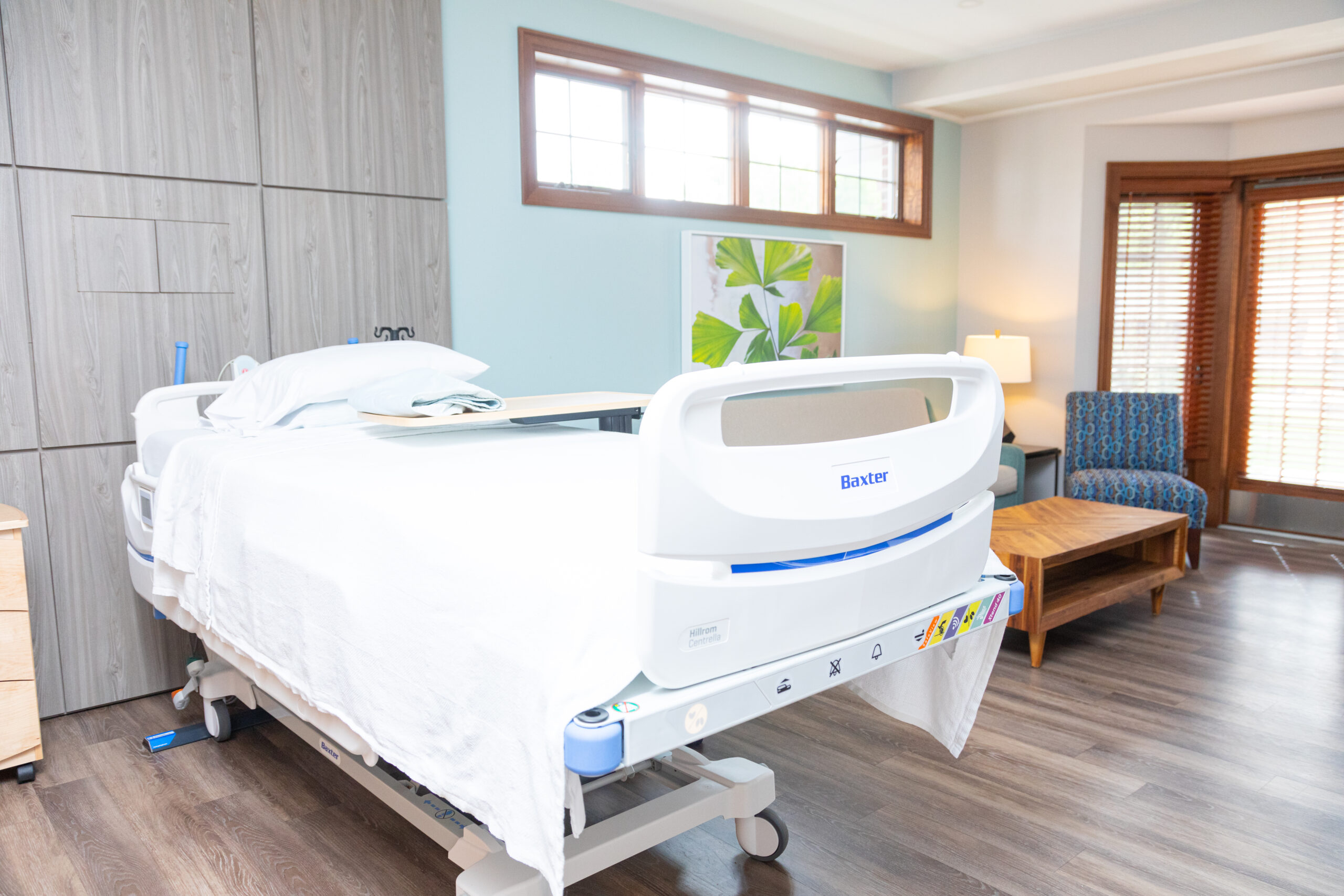Understanding Inpatient Hospice Services:
A Look Inside Inpatient Hospice Unit and Levels of Care

When a loved one enters hospice care, families are often faced with a whirlwind of emotions and decisions. One of the key considerations is where hospice care will be delivered—and for some patients, a freestanding hospice unit becomes the best option. Lightways Hospice and Serious Illness Care has a dedicated facility in Joliet, Illinois, which provides specialized, around-the-clock care in a comfortable, homelike setting. In this blog, we will explore how inpatient hospice service works and breaks down the different levels of care provided in a freestanding hospice unit.
What Is a Freestanding Hospice Unit?
A freestanding hospice unit is a specialized facility that operates independently (not attached to a hospital or nursing home) and is designed to provide short-term care for patients in the final stages of life. These units are staffed by a dedicated, multidisciplinary hospice team—including nurses, physicians, nurses’ aides, social workers, chaplains, integrative therapists, and volunteers—who focus on comfort, dignity, and quality of life.
In addition to end-of-life care, the inpatient hospice unit serves a vital role in helping patients transition safely from the hospital to home. Patients may be admitted for a short stay so we can stabilize difficult symptoms, such as pain or breathing problems, before they return home or to their long-term care or assisted living facility. During this time, our team works closely with family members and caregivers to provide hands-on education and support, ensuring they feel confident and prepared to care for their loved one wherever they call home.
For patients already receiving care at home, the unit is also available when symptoms become unmanageable and require 24/7 attention. The goal, whenever possible, is to help patients regain symptom control and return to the comfort of their home environment. Unlike hospital settings, our hospice unit offers a peaceful, home-like atmosphere where patients and families can focus on what matters most.
Levels of Hospice Care in a Freestanding Hospice Unit
Hospice services in the U.S. are regulated by Medicare and provided at distinct levels of care. Each level is tailored to meet the unique and changing needs of patients and families. In a freestanding hospice unit, there are three levels of care provided.
1. General Inpatient Care (GIP)
- What It Is: The most intensive level of hospice care.
- How It Works: Patients require 24/7 nursing and medical care to control pain or other symptoms that cannot be managed in any other setting.
- When It is Used: For symptom management—such as uncontrolled pain, seizures, or severe anxiety—until the patient is stabilized.
GIP care is a primary reason families choose an inpatient hospice unit. It offers peace of mind knowing their loved one is closely monitored and comforted around the clock.
2. Respite Care
- What It Is: Short-term inpatient care designed to relieve caregivers. The Hospice Medicare Benefit provides 5 days of respite care intermittently throughout your loved one’s hospice care.
- How It Works: The patient stays in the inpatient hospice unit for up to five consecutive NIGHTS, allowing their primary caregiver to rest or attend to other obligations.
- When It is Used: When a caregiver needs a break, is traveling, or has a personal emergency.
Respite care in a hospice unit is a vital support service, preventing burnout and ensuring the ongoing well-being of both the patient and their family. This care can also be provided in a long-term care facility contracted with hospice.
3. Routine Home Care
- What It Is: The most common level of care for a patient at home or at a facility.
- How It Works: Patients receive visits in their home or facility from the RN, certified nurse’s aide, social worker, chaplain, integrative therapist, and volunteers as they are needed. Families receive support from the social workers and chaplains, and nursing care is on call 24/7.
- When It is Used: For patients whose symptoms, comfort, and care, are well-managed by the family, facility, or caregivers. Lightways uses this level of care at our inpatient unit for short term periods (beginning at 5 days and then on a case-by case basis up to 3 weeks) and there is a room and board charge of $375.00 per day with a sliding scale for financial consideration available. This level of care is used for patients who do not qualify for the other levels of care and for some reason cannot be cared for at home.
What to Expect Inside Lightways’ Inpatient Hospice Unit
Inpatient hospice units are designed to be as comfortable and home-like as possible. You can typically expect:
- 24-hour visiting hours with no age restrictions, pets welcome
- Large patient suites with beautiful décor and natural lighting
- French doors in every suite that provide fresh air and outdoor access
- In-room refrigerators and televisions with streaming services
- Multiple gathering spaces including an expansive living room with a special Aqua flame fireplace
- A family dining room with round-the-clock access to a pantry filled with snacks, drinks and easy-to-prepare meals
- An inviting and peaceful Solace Room for quiet moments
- Dedicated workspaces for family and visitors
The goal is to provide a peaceful, compassionate environment where patients can spend their days with dignity—and where families feel supported every step of the way.
Choosing an inpatient hospice unit can be an important step in honoring a loved one’s end-of-life journey. With the flexibility of multiple levels of care—especially General Inpatient Care and Respite Care—our facility offers both advanced clinical support and the emotional warmth of a true home.
Hospice is not about giving up, it is about embracing the time we have left, with comfort, compassion, and care.
Contact Lightways Hospice and Serious Illness Care today for more information regarding our inpatient hospice unit located in Joliet, Illinois at 815.740.4104.
